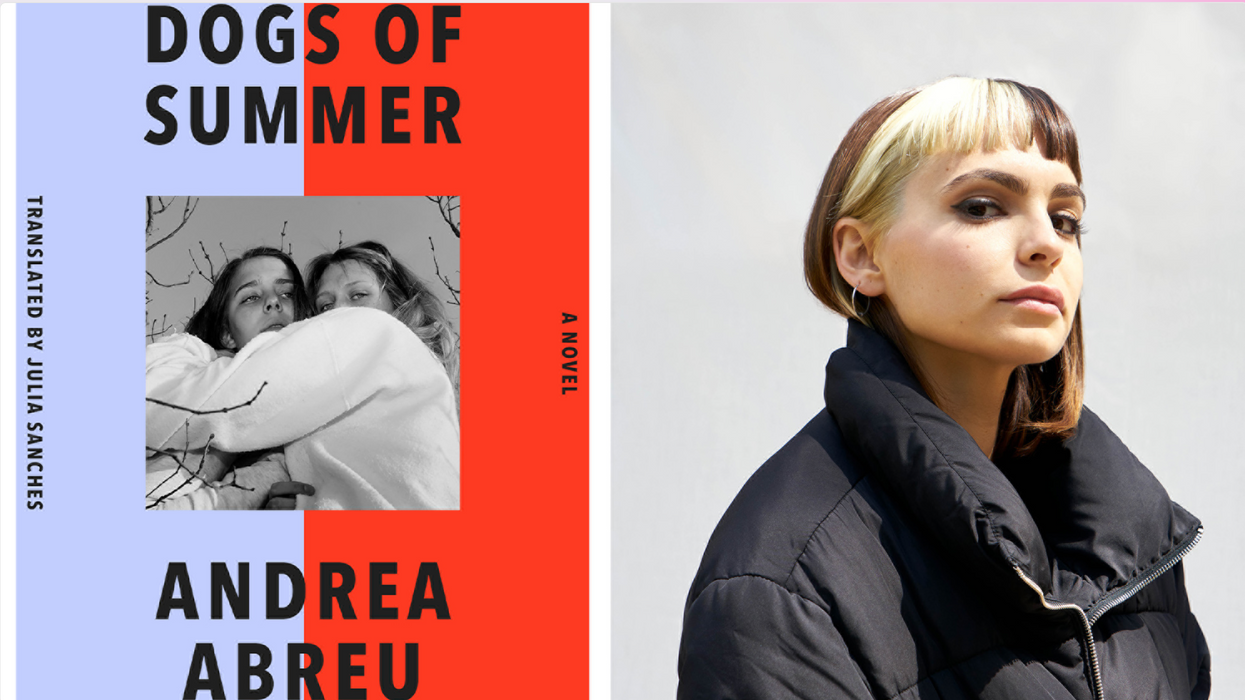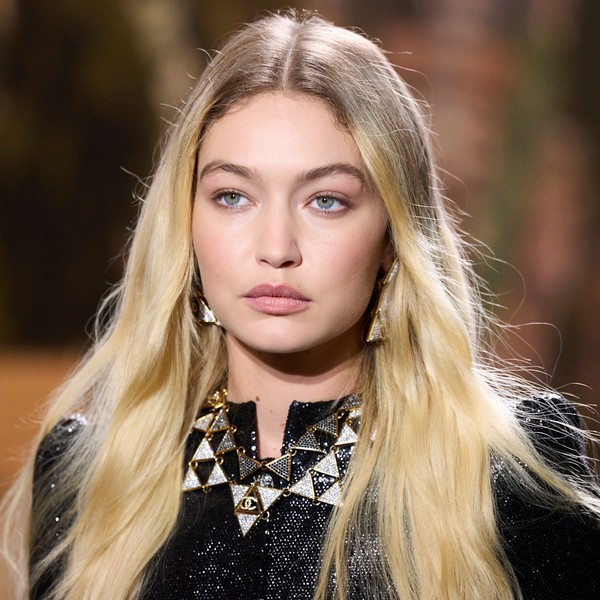‘Dogs of Summer’ Explores the Complexity of Queer Desire
Andrea Abreu’s novel plays with the distinction between obsession and violence.

If you search for beach resorts in Tenerife, you will come across luxury accommodations and resplendent views of the Atlantic Ocean interrupted by infinity pools and a sprinkling of tall palm trees. In Andrea Abreu’s novel Dogs of Summer (released August 2, 2022) high atop a mountain near the volcano on the island, two young girls choke on the haze which “hurt our chests to breathe and everything felt heavier than usual, like oursneakers were filled with concrete.”
This economic disparity serves as a backdrop for our narrator, lovingly nicknamed Shit by her best friend Isora. They are inseparable and the divide between their bodies is permeable. When Isora’s grandmother forces her to diet, Isora begs Shit to eat cake in front of her, satiated simply by watching. When they aren’t jointly dreaming of walking three hours to the beach, they are logging into chat rooms and exchanging messages with random people. Their friendship is threatened as Isora seems to mature at a pace that Shit can’t keep up with. In playful and arresting prose Abreu’s story depicts queerness on the cusp of puberty, and a vibrant community built in the shadow of an active volcano. Ahead, we spoke with Abreu about growing up near tourism, the complexity of queer desire, the implications of maturing during the rise of social media, and more.
Could you let me know a little bit about your journey to writing?
“I was born in a working-class [household] and there were practically no books. Initially I wanted to be other things: archaeologist, meteorologist, dancer. Of course, sometimes I fantasized about being a writer, but it was clear, because I had learned it by fire, that women writers were the daughters of rich or educated people. Even so, I always wrote, from a very young age: stories, poems, etc. I was a very good student and a very anxious girl. At the beginning of college, I realized that there were many things to read, and I began to read compulsively. Practically all day. I started skipping class. I remember thinking that every minute without reading was a minute wasted. I have had obsessive-compulsive disorder since I was a child and I think reading became my compulsion. That changed slowly and eventually became the pleasure of reading and the real habit of writing. Before, I was always waiting for inspiration.”
As someone who grew up in South Florida, one of the aspects of the novel that really stood out to me was the emphasis on the impact of living in proximity to tourism. Do you think growing up on a volcano positioned over posh resorts had an effect on you?
“It causes a normalization of dynamics that should not be normal for anyone. As a child I was always very impressed by the fact that my mother had to clean other people's houses while those people went on vacation. Who cleans the house of cleaning women? When do cleaning women go on vacation? To see tourists in front of your eyes is to be fully aware of the false showcase you have to sell. When I got older, I realized that [on the] Canary Islands children are educated from a very young age to please tourists. We are encouraged to learn languages, to know how to serve, to give directions correctly, to talk about our land as if we were promoting it. This is born of a purely colonial and classist education.”
What I think readers will find most compelling about Dogs of Summer is the strong friendship between Shit and Isora. Their love for each other serves as a container for the story. You can see this in the following passage: “I didn’t know the difference between me and Isora sometimes I thought we were the same girl Isora drank leche leche coffee with regular milk and condensed milk she sucked the condensed milk up with a straw like grannies did and I wanted to suck up Isora’s head so I'd have her inside my body.” There seems to be a fine line between violence and adoration here, could you speak a little about that?
“I am convinced that the appearance of humanity in the relationships between characters is built through ambiguity. My reference authors are always portraying pathetic and ambiguous characters who continually humiliate and are humiliated without will. I'm talking about authors like Lorrie Moore, Lucia Berlin, or Gabriela Wiener. The characters don't fit into the moral categories of good and evil, just as people don't fit either. On the other hand, there is the issue that children are deprived of the capacity to generate violence and unrest. They are deprived of all depth, and we assume that their relationships are flat. I wanted to build a complex relationship between girls based on the need I had to build a self-centered discourse of childhood. In addition to that, I am interested in the savagery or radicality or animality of human relationships, especially between girls. The question of the violent affections, the eschatology, and the shamelessness of girls has to do with that human animality.”
And speaking of that excerpt, Dogs of Summer was sprinkled with some of the finest descriptions of queer desire I’ve ever read. There is so much shame that we inherit as we grow up, and Shit and Isora seem to be on the cusp of their sexuality, in the sweet spot between innocence and shame. Why did you want to capture this time in Shit and Isora’s lives?
“It is a very complex time in women's lives because we begin to be tamed by the world and the rules of the adult world. It is the last remnant of savagery and sensuality before we are completely cut off from our connection with our body, our hunger, [and] our desire.”
Even though Isora is often the source of Shit’s anxiety, our narrator has a fear of being alienated from Isora. Why do you think our narrator feels this way?
“I think it's something very typical of queer childhoods, the same girl who makes you envious for being more advanced or beautiful or intelligent you also like. You don't have a clear frame of reference of what it's like to like a girl. Then you are very confused, because you do not know if you want to give her a kiss or a slap for having the biggest tits. That is, at least, my experience as a bisexual.”
Early on in the novel our narrator says something that is particularly heartbreaking to read: “If there was one thing I knew it was that me and Isora were made the way things that are born to live and die together are made.” It is heartbreaking because it is rare for childhood friendships to last through adulthood. But Shit imbues their friendship with a mythical quality. Do you think that this is unique to Shit and Isora or is this a natural quality of childhood? Why?
“It's the big theme of my life. I think it's a specific quality of friendships between girls. Don't ask me why because I don't know yet. I wrote this novel because I don't have an answer for it.”
To position this story in 2005 means that these two young girls are coming of age at a time when social media is in its infant stages. What role does the internet and technology have for these girls?
“The internet is the before and after in the lives of people in the neighborhood. These girls lived the first years of the internet without any kind of guardianship, completely anodized by the lights and hums of MSN. With the internet we discovered new types of violence without knowing it was violence, but we also created new ways of relating and loving, among other things. I feel very deeply in me the wound of the internet and I know that most girls my age do too. The internet has given us the worst and the best things. It helped our suicidal mentalities, to encourage our eating disorders and was the perfect channel for sexist abuse, but, at the same time, it allowed us to know feminism or decolonial theories, connected us with other parts of the world, allowed us to discover our passion for poetry. I always live in the following dichotomy: social networks give it to me and take it all away from me at the same time. Today I hate Instagram because it gives me anxiety, but tomorrow I want to tattoo the sticker of the kitten who writes on his laptop.”
Want more stories like this?
Danielle Prescod Takes on the Fashion Industry in Her New Memoir
Constance Wu is Adding Context to Her Story
Elissa Bassist on Writing a Memoir, Harnessing Her Anger, and Finding Her Voice





